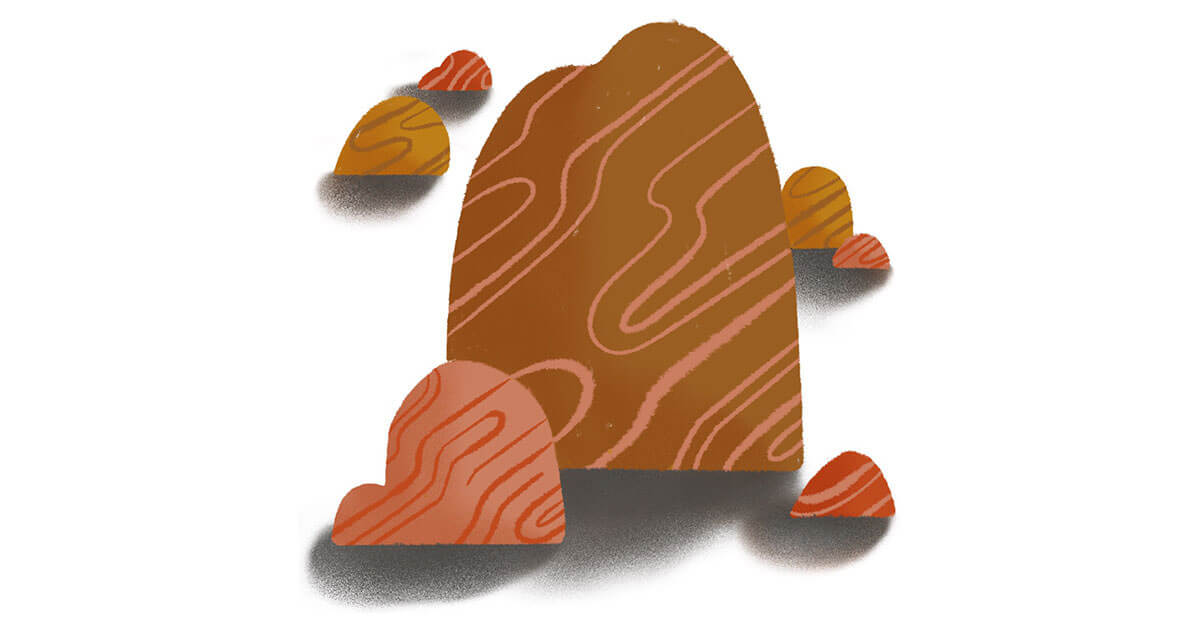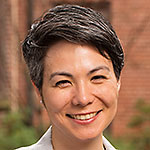
Being Asian American is complicated. It’s not just about our appearance, language, culture, mannerisms, or values. People who were adopted from Asia and raised in white families are Asian American. People who have been in the U.S. for less than a generation are Asian American. We do not share a common migration story.
Just as there is not one way to be Asian American, there are multiple ways to be an Asian American Christian. We are no monolith. We are multiple. We all have stories of believing and becoming. Here is my story of being an Asian American Christian, reckoning with the beauty and tension of our multiplicity.
My religious upbringing was shaped by growing up in predominantly white congregations in a predominantly white denomination — what is now the Presbyterian Church USA. My white Jewish father (yes, he converted) was ordained as a Presbyterian pastor when I was 4 months old. He was the pastor of the congregations I was a part of until I rebelled in junior high and started attending a new church, also pastored by a white man. The church’s leadership was predominantly white, the Sunday School teachers and youth group leaders were white, and the music was either classical hymnody or praise music from white cultural contexts.
It’s not that I never saw Asian American Christians. The first Asian American women preachers I saw included a seminary student who came to intern at the three-point parish my father served at when I was a toddler, and my mother, who began serving congregations while working toward ordination when I was in high school. My parents also knew other Asian American pastors.
But I had no concept of Asian American Christianity in its own right until I was in college and active in the denomination at the national level. I learned there was an entire caucus of Asian American Presbyterians, most of whom belonged to predominantly Asian American congregations.
When I was 22, I attended a conference of the Pacific Asian North American Asian Women in Theology and Ministry (PANAAWTM) in 2001, a group of Asian Pacific American/Canadian and Asian feminist scholars and practitioners who had been convening since 1984. The Protestants among these women were mainline Christians — Presbyterians, United Church of Christ (UCC), and Methodists, among others — who were decidedly feminist and diasporic in nature.
By my mid-20s, I began interacting with the Asian Pacific American Religions Research Initiative (APARRI), which is where I met Asian American religious scholars of many religions. This was one of my first experiences of Asian American evangelicals. I began more intentionally interacting with evangelicals, knowing that Asian American Christians were also evangelical, doing leadership development and vocational discernment with young adult Asian American Christians in my first call. I attended conferences, invited participants, and tried to be careful about what happens when evangelicals and non-evangelicals mix in a faith-based setting (it frequently turned out not-great, if you’re curious).
At the same time, I was serving on a committee for Asian American and Pacific Islanders engaging in education and leadership formation with the National Council of Churches. Everyone was a mainline Protestant, working with Asian American communities in their denominations. These communities were frequently dwindling groups of older folks or new burgeoning communities, both often under-resourced due to their own situations and being minority groups in majority-white denominations.

I was in my late 30s when I encountered the Progressive Asian American Christians (PAAC) Facebook group in 2016. And I admit that I wondered what had taken everyone so long. I had known legacies of progressive Asian American Christians who came before me, making it possible for me to serve as a minister, giving me frameworks, language, and models. My experience of being an Asian American Christian was shaped by being in a minority in a majority-white context, of being connected with communities of Asian American scholars and individual leaders, and of knowing Asian American congregations without ever joining one. (If you know anything about the history of Japanese Americans in the U.S., you can guess how it came to be that many of us don’t attend Japanese American churches.)
I rolled right into PAAC and smacked into the confluence that is PAAC: where progressive Protestants, Catholics, Orthodox, and evangelicals mingle, of pre-1965 immigration and post-1965 immigration, where my decades of reading Asian American feminist theology ran into those who didn’t know that theology existed. The world of my heart and deepest faith is filled with progressives of many racial backgrounds. PAAC crowded in a lot of things I never wanted to know. I really don’t want to know that there are Asian American Christians who would rather listen to or argue about Tim Keller than learn about Asian American worship or Asian Christian feminist history. I don’t want to know there are queer Asian American Christians who believe they will never fall in love, because that’s not what their faith tells them.
After all, we are not a monolith. Not one of us owns the identity of progressive, or Asian American, or Christian.
I quickly became frustrated with those who didn’t honor the legacy of PAACs who came before us, because they had never been told those stories. I had to remind myself that because of where I lived and the congregations I was a part of, I didn’t even get to be exposed to the idea that people who looked like me could have a unique claim on Christianity without the mediating influence of white people.
When I first began to spend time among a more diverse group of Asian American Christians, I was so confused at the elevation of white evangelical leaders who got to be speakers at some of these Asian American evangelical conferences, while I knew plenty of perfectly excellent Asian American leaders. I didn’t understand why everyone seemed comfortable with all the women on a panel being therapists and all the men being pastors. I could be reading feminist postcolonial Asian American theology, and other Asian American Christians were really worried about the souls of their non-Christian parents. What we had in common was our racial identity, but not much else. I saw people concerned with limits, turning to white leadership because they either didn’t know about or couldn’t find the Asian American leadership they needed.
But among all of us, we do have what we need. What does my story have to do with yours? Here in these pages, we have encountered each other. We came together by many paths, me through Chung Hyun Kyung, and maybe you by your reactions to Tim Keller.
I do not believe that being a Christian neutralizes the rest of our identity. I believe God made us as we are. God meant for me to be a biracial Asian American of Japanese and white Jewish descent. God created me queer. God created you, too, and declared you beloved.
Asian American Christianity is not a monolith. It is multiple. We have all been formed by a wealth of resources, some of which are concerned with love, liberation, and fullness of life. God has given us enough.

The Reverend Laura Mariko Cheifetz is an ordained Teaching Elder in the Presbyterian Church (USA). She has served in theological education, religious publishing, and social justice advocacy, and provided leadership in the national and international church. She is also the co-author and editor of “Church on Purpose” and contributor to “Race in a Post Obama America, Leading Wisdom, and Streams Run Uphill”. She is a contributing editor to Inheritance magazine. She lives in Decatur, GA with her partner and their two Shih Tzus.

Kimberlie Clinthorne-Wong is an illustrator and ceramic designer based in Hawaii. She is the cofounder of the collaborative ceramics studio, Two Hold Studios, LLC. Kimberlie’s work can be found at www.kimberliewong.com and on Instagram @kimiewng.